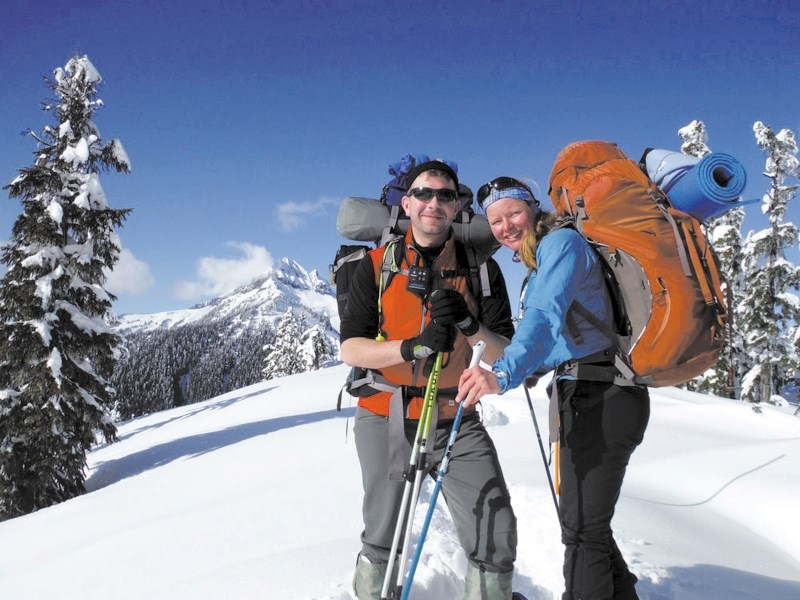A Cochrane couple is stressing the importance of CPR following a wilderness rescue that helped save the life of a 24-year-old Calgary woman.
Eric and Heike Urban’s trip to Garibaldi Provincial Park began as a holiday, but took a turn on the second day of the trek. Travelling with four friends, the couple stumbled across the frozen body of Christine Newman.
Newman had fallen into a tree well and was buried up to her neck in snow. She had reportedly left the shelter in the wee morning hours to venture to the outhouse and became disoriented. Reports speculate she could have been buried in the snow for about seven hours.
Newman had met the Urban’s group — who were snowshoeing and skiing — the night of March 31 at the Elfin Lakes Shelter. Eric said the young woman, a student from Simon Fraser University out for a snowshoe, stood out with her yellow backpack.
When the troupe started out the next morning, it was this same backpack — laying on their trail — that tipped them off that something was amiss.
“I started searching the area near our trail,” said Heike. “That’s when I saw her in the tree well. All we could see was her head and her hair.”
Eric said Newman was exhibiting signs of life at that time, making what he described as a “growling noise.” The noises stopped when she was pulled out of the snow.
It took about five people to dig Newman out of the well, which was located about 15 metres from the travellers’ track. Eric returned to the hut — about 800 metres away — to get help. Meanwhile, the group began administering CPR.
“We kept seeing signs of life,” said Heike. “She would move her hands, her pupils would react to light, or it would feel like she was taking a breath.
“It was encouraging and we knew help was coming. So we just kept going.”
The Urbans are no stranger to first aid and CPR: Eric is a Calgary police officer; Heike is a former police officer, lifeguard and is a wilderness guide for Pika-Adventures Inc. Both are active members of Cochrane Search and Rescue. Still, neither had experienced a “life or death situation,” said Eric.
“It was nerve-wracking,” said Heike. “We didn’t know how she was or if we were doing the right thing. We didn’t think about it — we just did it.”
Taking turns, the group performed CPR for more than two hours while waiting for Squamish Search and Rescue to arrive. Only when Newman was safely loaded into the helicopter being tended to paramedics did the adventurers halt their efforts.
It’s estimated that about four hours worth of CPR was performed on Newman before she was placed in the hands of doctors at Vancouver General Hospital. When she landed, she was hypothermic and in full cardiac arrest.
When the Urbans visited her a few days later, Newman was still in the intensive care unit, but Eric said she was sitting up, smiling and thanking them for their part in her recovery.
“She was showing us how she had full function of her hands,” said Heike. “She didn’t even suffer any frostbite.”
“This has taught us how important it is to have CPR and first-aid training,” said Eric. “Anyone can do it and it can make a big difference.”
Anyone interested in fine-tuning their first aid and CPR skills can contact the Canadian Red Cross or Pure Mountain Medic.



